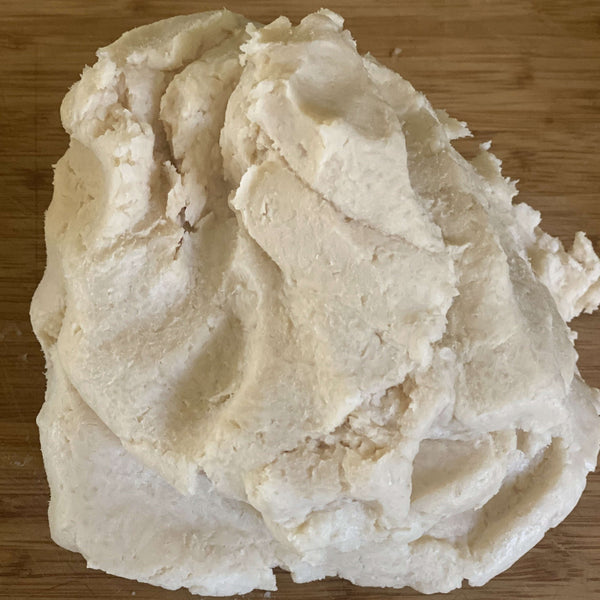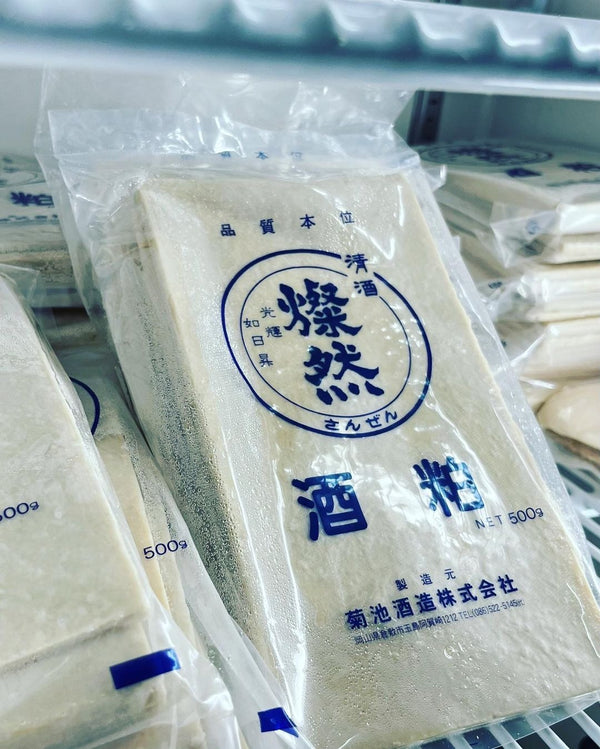Sake Kasu (Sake Lees - Soft, Japan)
This product is unavailable
Delivery
We ship your pouches frozen via Australia Post - Express - on Mondays-Wednesdays in eco-friendly (paper) insulated packaging.
FAQs
Frequently Asked Questions
What's the difference between Coconut Water Kefir and Coconut Milk Kefir?
Coconut Water Kefir is light, sparkling, and refreshing – think probiotic tonic. Coconut Milk Kefir is creamy and tangy, similar in consistency to dairy kefir, perfect for smoothies or enjoying like yoghurt.
Are these products vegan?
Yes, both are 100% plant-based and suitable for vegans and anyone avoiding dairy.
Do they contain the same probiotics as milk kefir?
Both coconut kefirs are fermented using traditional water kefir grains, creating billions of beneficial bacteria. While the specific probiotic strains differ slightly from milk kefiR, both deliver powerful gut health benefits.
How do I use Coconut Milk Kefir?
Use it anywhere you'd use dairy kefir or yoghurt – blended into smoothies, poured over granola or muesli, mixed into overnight oats, or enjoyed straight from the glass. It's also excellent in salad dressings and dips.
What does Coconut Water Kefir taste like?
Lightly tangy with subtle coconut notes and a gentle effervescence. It's refreshing drunk chilled on its own, or use it as a base for probiotic mocktails and smoothies.
Is separation normal?
Yes! Coconut Milk Kefir may separate slightly – this is completely natural. Simply give it a gentle shake before use.
How should I store these products?
Keep refrigerated at all times. Coconut Water Kefir is best consumed within 4 weeks of receipt. Coconut Milk Kefir within 28 days for optimal freshness and probiotic activity.
Are these products suitable for people with nut allergies?
Coconuts are technically classified as drupes, not tree nuts. However, if you have concerns about coconut allergies, please consult your healthcare provider.
This is a raw and beautifully soft dough-like sake lees imported from Japan from a variety of breweries. We have in stock the gorgeous Stella Junmai Daiginjo, Tsukasa Imayo and Itakusu Sanzen.
Sake kasu can be used for baking breads and cakes, the vegan cheese sauce from my book - the crackers from my book - drinks, soups, and various enzyme face masks - and more exciting even - as a pickling bed. We have to be grateful to sake for its by-product alone. x
This is fresh and unpasteurized; we pack it frozen with some ice packs, please pop into your freezer as soon as possible. Don't worry if it has defrosted somewhat on the journey to you - there is a little alcohol in there so it will be fine to refreeze.
Full of umami goodness - and enzyme-rich, so great for our bodies inside and out.
Sake Kasu or lees is the leftover mash after pressing to extract Sake (following fermentation). The kasu is raw, and filled with lots of nutrients including proteins, vitamin B, fiber, and yeasts. There is a small amount of residual alcohol remaining.
500g



